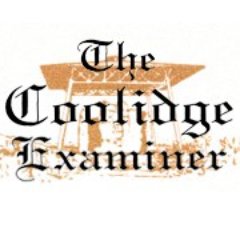Shope helps form ‘millennial caucus’ for younger lawmakers
April 18, 2018
Insisting that age — or lack thereof — makes a difference, a group of young Republican and Democrat lawmakers are forming a “millennial caucus” to find areas of common ground.

PHOENIX — Insisting that age — or lack thereof — makes a difference, a group of young Republican and Democrat lawmakers are forming a “millennial caucus” to find areas of common ground.
But don’t look for a Kumbaya moment on the hot-button issues like gun rights and school funding.
At a press conference Wednesday, Rep. T.J. Shope, R-Coolidge, said there are a whole bunch of issues that those of his age group understand much more than the older members of the House and Senate. That includes rideshare, home sharing and the taxation of digital goods.
“People our age, in that millennial category, have grown up or have been using these items, whether digitally or on the phone, for most of the last decade or so,” said Shope who is 32.
And he said younger lawmakers, have the opportunity “to talk to our colleagues on the other side of 40 about how these items work, about their implications on Arizona’s tax code and already established businesses.”
Rep. Mark Cardenas, D-Phoenix, said he sees the caucus as a method of building bridges where they can be built.
“Forget the divisiveness in Washington, D.C., forget the divisiveness of the buildings in front of me,” said Cardenas, referring to the state House and Senate.
“It’s about coming together to solve the issues such as digital taxation, such as Airbnb, such as Uber,” said the 31-year-old lawmaker. And he said younger lawmakers are probably in a better position to understand — and deal with — issue on the horizon like the state’s role in regulating or overseeing blockchain technology.
While the goal exists, both conceded that huge gaps remain, even on issues that have been of particular concern to younger voters, like LGBTQ rights and abortion. But Shope said that should not preclude caucus members from discussing these issues to see if there can be some common ground.
“We’re going to go ahead and work through those things,” he said.And if there is no agreement?
“We’re going to shake hands and we’re going to go on to the next thing after that,” Shope said.
He conceded that the idea of working with other young lawmakers across the aisle is likely to draw some raised eyebrows, particularly among the older rank-and-file members of both parties.
“There are folks out there within our base I think that truly don’t want us to get along,” he said. “I think that’s a bad, bad toxic thing that’s happened in politics overall.”
But those sharp divisions remain on items awaiting legislative action this year. That starts with what kind of regulation of guns will be included in the school safety bill, including the question of whether a background check should be required when an individual sells a weapon at a gun show.
“As a former combat veteran, as a veteran of our armed forces, before I picked up a rifle and shot it downrange I had to have a background check done,” Cardenas said.
And Shope?
“I’m a lifetime member of the NRA,” he said, an organization that opposes universal background checks. “Nobody’s going to get me off of that.”
Shope also backs the plan being pushed by Gov. Doug Ducey to increase teacher pay an additional 19 percent during the next few years, relying largely on a presumed growth in the economy and tax collections.
Cardenas, by contrast, said the governor’s projections are “unsustainable,” saying what’s needed is a broad-based source of revenues and not just heavy reliance on sales taxes.
Shope helps form ‘millennial caucus’ for younger lawmakers
PHOENIX – Insisting that age – or lack thereof – makes a difference, a group of young Republican and Democrat lawmakers are forming a “millennial caucus” to find areas of common ground. But don’t look for a Kumbaya moment on the hot-button issues like gun rights and school funding.






Join 1,800+ BIPARTISAN LEADERS NATIONWIDE
Be a part of a network of lawmakers committed to governing effectively, passing more representative public policy, and increasing public trust in democracy.